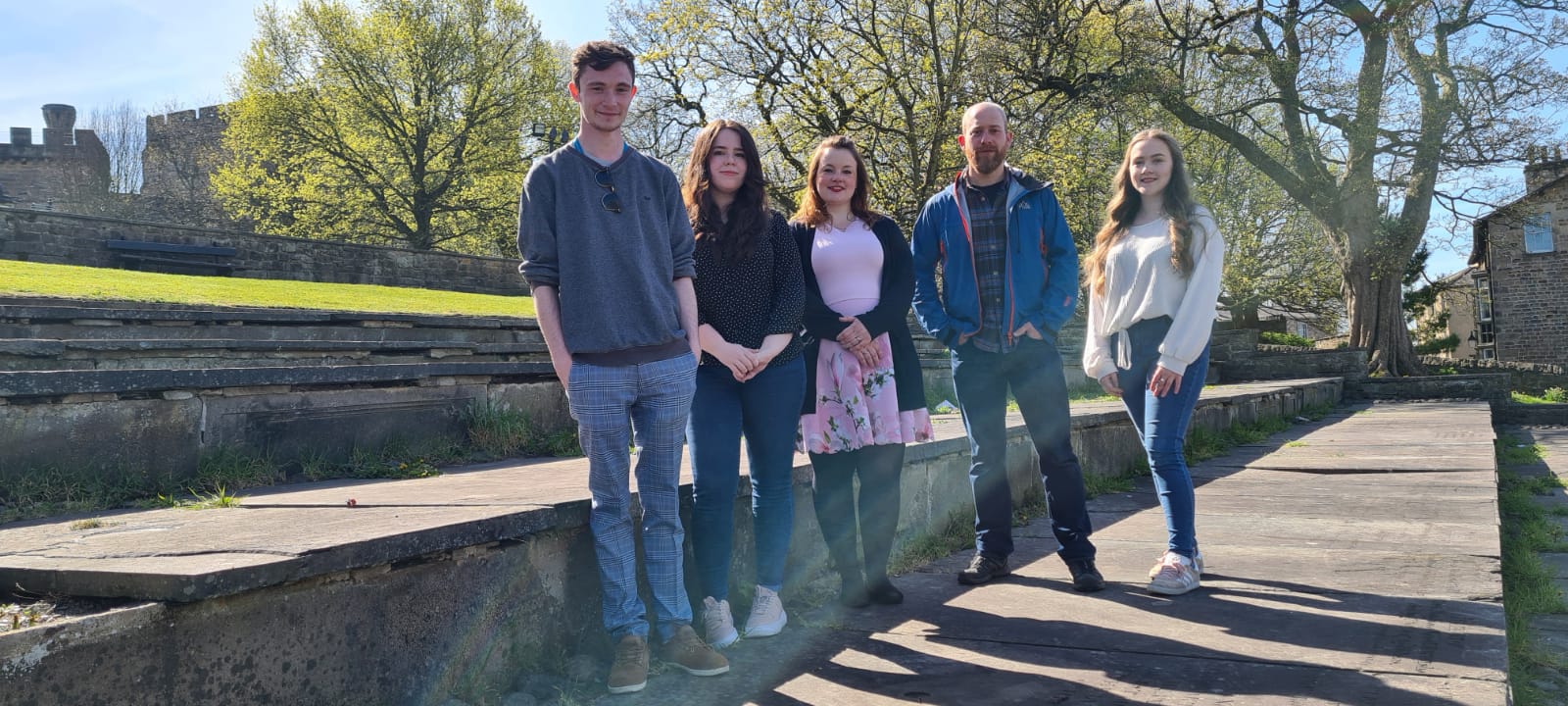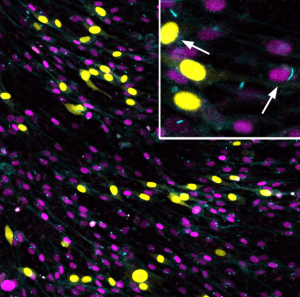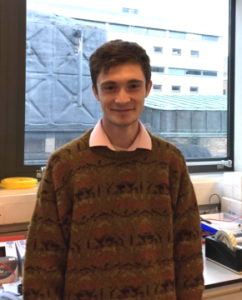
We’re interested in development, tissue homeostasis and disease with a focus on the melanocyte lineage. We use live imaging of cells and tissues and biosensors of cellular processes such as cell cycle progression.

Melanocytes and melanoma: Melanocytes are the cells in our skin and hair that produce pigment. Melanoma, a cancer of melanocytes, is one of the deadliest forms of skin cancer. Its incidence has increased 7-fold in men and 4-fold in women in the last 40-years. The risk of developing melanoma is exacerbated by exposure to UV radiation in sunlight/sunbed lamps. Our research is concerned with the early development of the melanocyte lineage and the lineage relationships and me behaviour of the adult melanocyte populations and their roles in melanoma.

Biosensors of tissue homoeostasis: Biosensors that mark cell cycle stage allow real time visualisation of cell cycle dynamics in cell culture, during embryonic development and in tissue homoeostasis. Fucci was developed by Prof. Atsushi Miyawaki and Dr. Asako Sakaue-Sawano (RIKEN, Japan) and incorporates genetically encoded probes that highlight G1 and S/G2/M phases of the cell cycle allowing live imaging. In collaboration with Prof. Miyawaki and Dr. Sakaue-Sawano we have developed polycistronic versions of these cell cycle probes allowing the generation of single Cre-inducible mouse strains.

Join the Mort Lab: We can offer PhD and MSc by research projects on either melanocytes/melanocyte development/ melanoma or cell and tissue biosensors. Please contact Dr. Richard Mort (r.mort@lancaster.ac.uk) for further details. Please see the recent posts for specific funded opportunities. We can current;y offer the following projects for self-funded MSc by research:
MSc Project 1: Developing multicistronic biosensors of proliferation and DNA damage.
MSc Project 2: Investigating the role of mechanical forces on melanocyte and melanoblast behavior.
Members:
 Richard Mort – Senior Lecturer in Biomedicine. Richard studied Experimental Pathology in Edinburgh before completing a PhD with Dr. John West on eye development. He spent eight years at the Institute of Genetics and Molecular Medicine in Edinburgh working with Prof. Ian Jackson before moving to Lancaster to establish an independent group.
Richard Mort – Senior Lecturer in Biomedicine. Richard studied Experimental Pathology in Edinburgh before completing a PhD with Dr. John West on eye development. He spent eight years at the Institute of Genetics and Molecular Medicine in Edinburgh working with Prof. Ian Jackson before moving to Lancaster to establish an independent group.

Emma Wilkinson – Senior Research Associate in melanoma, skin and the UV response. Emma is developing mouse-tail skin culture as a preclinical model to investigate the response melanomagenesis. Emma’s undergraduate degree was in pharmacology and physiology at the University of Manchester . She subsequently completed a 1 + 3 year MRes/PhD in the field of cardiovascular toxicity at the University of Liverpool before working as a post-doctoral research associate in the field of Vemurafenib resistance at Liverpool.

Tiernan Briggs – Phd Student. I am a PhD student working on the development of new cell cycle biosensors with improved cell cycle stage discrimination. I undertook my Undergraduate degree in Biological Sciences and Biomedicine at Lancaster University from 2015 to 2018 and began my PhD in 2018.
Louise Brennan – Faculty of Heal th and Medicine funded PhD student.Louise’s PhD project is focusing on melanoma heterogeneity. By using genetically encoded biosensors to explore the role of UV exposure in modulating the cell and cilia cycles. Louise joined Lancaster University in October 2019. She gained her undergraduate degree from Edge Hill University, before completing an MRes at Edge Hill identifying and evaluating a novel mutation underlying ichthyosis.
th and Medicine funded PhD student.Louise’s PhD project is focusing on melanoma heterogeneity. By using genetically encoded biosensors to explore the role of UV exposure in modulating the cell and cilia cycles. Louise joined Lancaster University in October 2019. She gained her undergraduate degree from Edge Hill University, before completing an MRes at Edge Hill identifying and evaluating a novel mutation underlying ichthyosis.
 Leah Pomfret – EPSRC-DSTL funded PhD student. I graduated from Lancaster University in 2020 with an Integrated Masters degree in Biomedicine. I undertook my Masters in Dr. Mort’s lab alongside co-supervisor Dr. Benedetto; investigating the optimal pattern of LED light that influences wound healing. My PhD is interdisciplinary under the co-supervision of Dr Richard Mort, Dr John Hardy and Dr David Cheneler. My project aims to investigate using electrically conductive biomaterials for the regeneration of soft tissue.
Leah Pomfret – EPSRC-DSTL funded PhD student. I graduated from Lancaster University in 2020 with an Integrated Masters degree in Biomedicine. I undertook my Masters in Dr. Mort’s lab alongside co-supervisor Dr. Benedetto; investigating the optimal pattern of LED light that influences wound healing. My PhD is interdisciplinary under the co-supervision of Dr Richard Mort, Dr John Hardy and Dr David Cheneler. My project aims to investigate using electrically conductive biomaterials for the regeneration of soft tissue.
Alumni:
Chris Steel
Dr. Matthew Ford
Dr. Olivia Harrison
